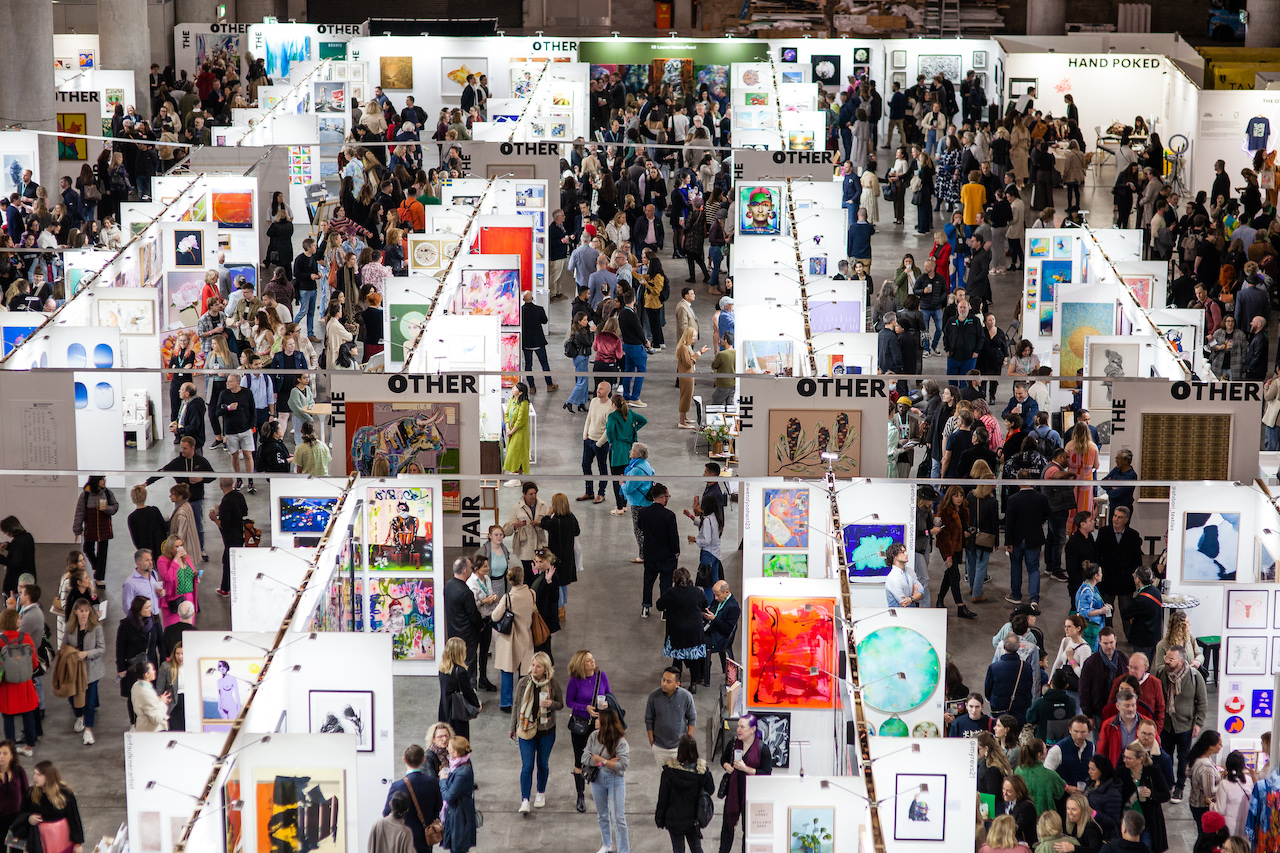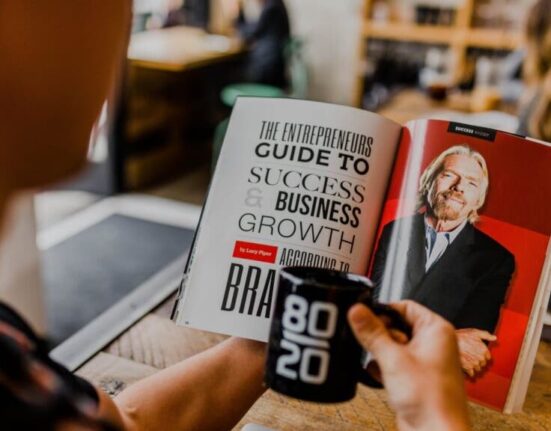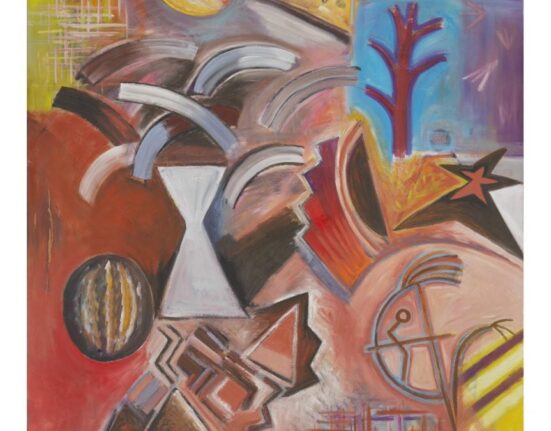There are now new pathways to art ownership that include private syndicates and immersive art fairs for investors.
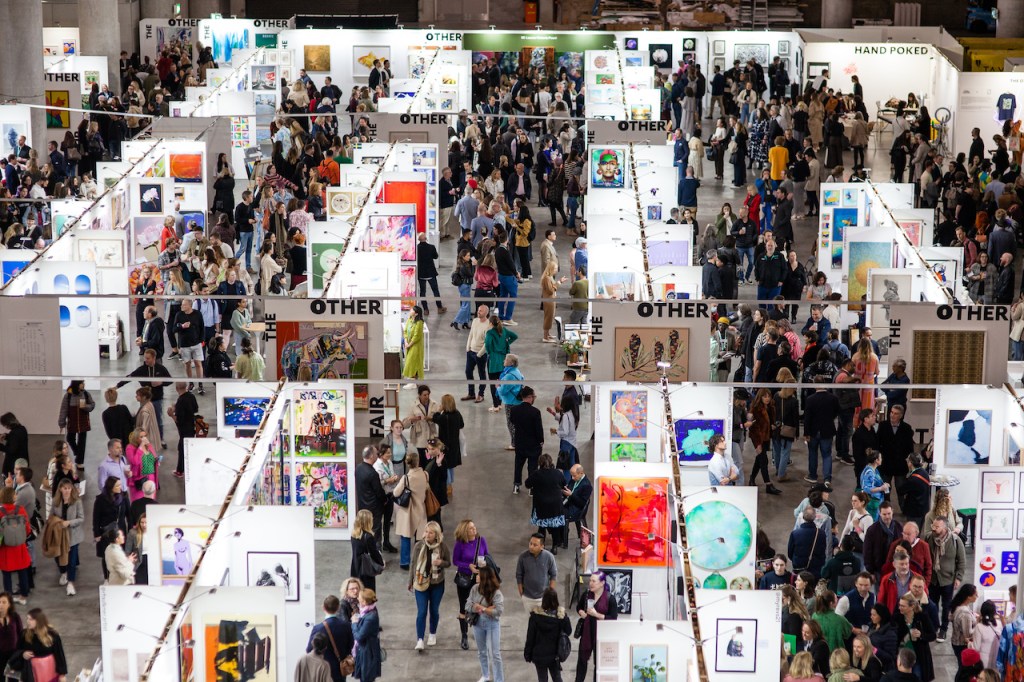
While most art collectors will only ever make in-person purchases, a growing number of people are open to both online and offline channels, says the director of The Other Art Fair, Luke Potkin.
“It’s not a binary thing,” he says. “When someone buys a piece of artwork online, the journey usually began offline – or vice versa. People do still want that in-person experience. There’s more excitement at an in-person event. There’s a rush of blood to the head and an element of scarcity, because there are other buyers in the room.”
The Other Art Fair is designed to entice a new generation of collectors. It has DJs, a bar, stick and poke tattoos and even on-site nude portraits.
Every artist attends the fair to meet buyers, and prices are required to be displayed. It is hosted by the world’s largest online gallery, Saatchi Art, and its biggest visitor demographic is the 25-to-45 age group.
The Other Art Fair is held in Melbourne, Sydney, Dallas, Brooklyn, Chicago and London. This year, the Sydney fair attracted 12,000 people over three days, while Melbourne received 8,000 visitors.
“Australian cities may be smaller, but they certainly hold their own in terms of art sales and visitor numbers,” says Potkin. “Until last month, the Sydney fair held the record for the highest revenue of sales globally during a single event in the fair’s 12-year history.”
The return of art fairs after the pandemic has resulted in dealers making a growing percentage of their sales at in-person events, according to Basel Art.
However, the value of sales is yet to return to pre-pandemic levels, which could indicate that a growing number of buyers are sticking with online channels.
During the pandemic, millennial art collector Nikita Le Messurier was forced to purchase artworks online, but she has since returned to in-person transactions.
“I love meeting artists and finding out why they created a particular piece of work and what it means to them. For me, an important part of collecting is building that relationship and following their career as it develops over time,” she says.
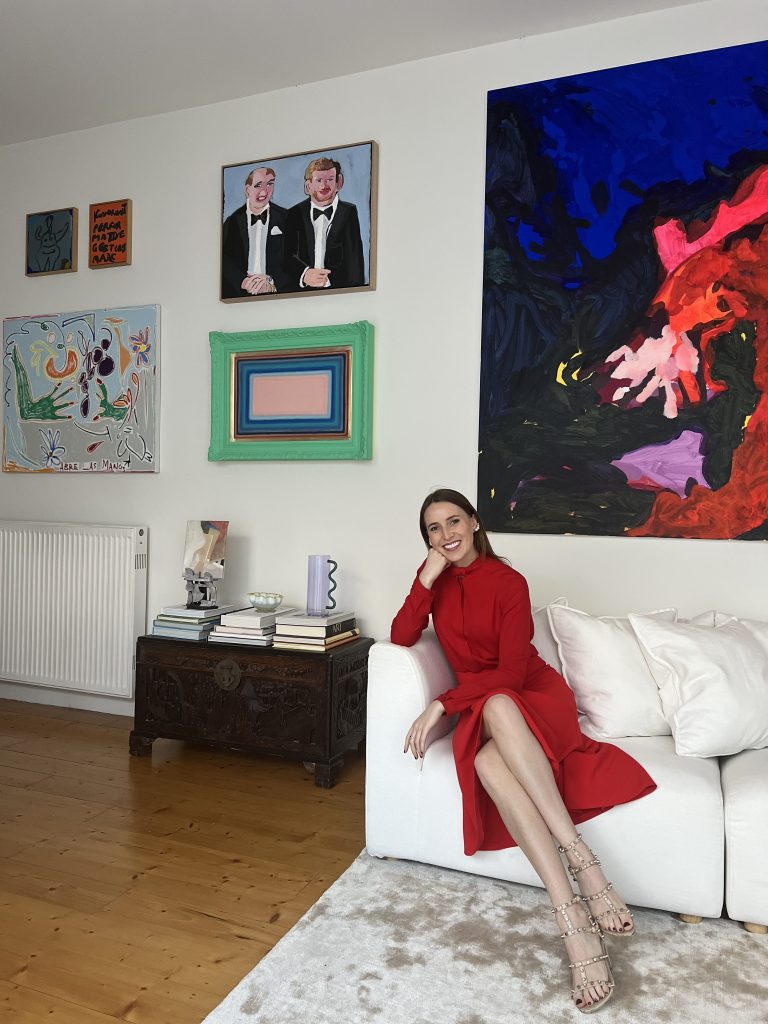
Le Messurier is a tech investor and startup advisor at AWS and she made her first art purchase using Australian financing platform Art Money. She is now an investor in the platform too.
“I had just started my very first job after moving back to Australia from London when I saw a piece of art that I fell in love with. I discovered Art Money and started paying those first installments. Literally the next month I went and bought another artwork. I’m obsessed with art and now have more than 45 pieces.”
As Le Messurier’s journey as a collector progresses, she has begun to long for more valuable works. To increase her purchasing power, last year she created an art syndicate with a fellow tech investor and friend.
They recently purchased their first piece together.
“We have shared custody of it, which means we rotate it in our homes. I am also working on getting 10 to 15 people together for a syndicate of people who really love art. We can pool our resources and then purchase a couple of beautiful, mid-career pieces plus some emerging artwork. The pieces would be moved around everybody’s houses over time.”
It is also an investment, with each syndicate member contributing a set amount each year for a certain period of time – say 15 years.
At the end of the agreement, the artwork can be auctioned off and the profits split – or one of the syndicate members can buy out the others and purchase the work, thereby saving on auction fees.
“There are only a small number of people who can afford very expensive artwork,” says Messurier. “By coming together as an art syndicate, we are creating a new segment of buyers at a top end of the market that didn’t exist before. It’s exciting.”
Look back on the week that was with hand-picked articles from Australia and around the world. Sign up to the Forbes Australia newsletter here.

